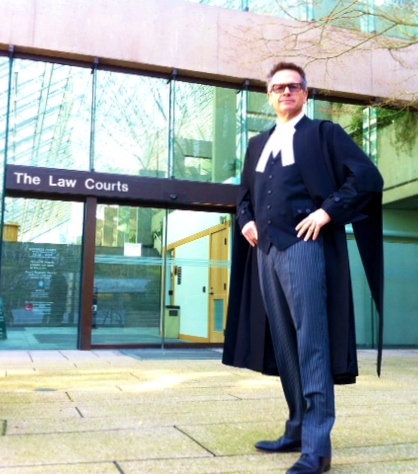A recent BC family law, BC Court of Appeal case addressed the issue of giving credit to a millionaire payor spouse who failed to disclose his true income, to reduce a retroactive award of BC child support based on the BC paying spouses blameworthy conduct in failing to disclose his true income over several years.
In allowing credit for some of the estimated past payments, the court held the paying spouse couldn’t ignore the Child Support Guidelines by setting up his own rogue scheme.
The BC Court of Appeal also said that without solid proof of the direct payments the payor would not be given credit for alleged past payments.
Here is an extract from the judgment in Swiderski v Dussault
32] In certain circumstances, the conduct of a payor parent may weigh against granting a retroactive award if it has the effect of fulfilling his/her support obligations indirectly:
[109] Finally, I should also mention that the conduct of the payor parent could militate against a retroactive award. A court should thus consider whether conduct by the payor parent has had the effect of fulfilling his/her support obligation. For instance, a payor parent who contributes for expenses beyond his/her statutory obligations may have met his/her increased support obligation indirectly. I am not suggesting that the payor parent has the right to choose how the money that should be going to child support is to be spent; it is not for the payor parent to decide that his/her support obligation can be acquitted by buying his/her child a new bicycle: see Haisman v. Haisman (1994), 22 Alta. L.R. (3d) 56 (C.A.), at paras. 79-80. But having regard to all the circumstances, where it appears to a court that the payor parent has contributed to his/her child’s support in a way that satisfied his/her obligation, no retroactive support award should be ordered. [Emphasis added.] 36]
On appeal, the appellant concedes blameworthy conduct in failing to disclose financial information and in not regularizing the payments within the scheme of the Guidelines, but, he submits, this does not justify the complete disregard of the payments he made.
[37] While I think that the misconduct as found by the judge is an important factor in determining the result and in the treatment to be given to the evidence of direct contributions, I must accede to the appellant’s argument that the retroactive question could not be answered without at least taking those payments, or such of them as are proved, into account. At the same time, the appellant cannot expect generous treatment of his evidence of contributions, nor complain of the negative influence his conduct brings to bear in the balancing process.
[38] While D.B.S., at para. 109, opens the theoretical possibility that the payor parent can justify himself by showing total payments equivalent to the Guidelines amounts, this, I suggest, presupposes candour, openness and satisfactory proof of the amounts. None is present in this case.
[39] There are at least two reasons why payors should not be able to create their own support regimes. The first is that the receiving parent usually has custody, and must be the one to make decisions about the child’s expenditures. A private unilateral scheme operated by the payor can be a method of control which undermines the authority of the custodial parent. The second reason is that the payor is in sole possession of the information about direct payments. Unless the payor is forthcoming about such payments in a timely way, the payee is at the mercy of the payor’s record-keeping. This case provides an illustration of the problem. The judge found that the appellant manipulated the data in ways which were difficult to follow, and otherwise unhelpful. The appellant presented tables for expenditures in 2006 for which there was some documentary support, and then he extrapolated from those figures to arrive at estimations of what he spent in prior years. This is very problematic for a party in the respondent’s position, and difficult to respond to.
48] The judge found blameworthy conduct on the part of the appellant, namely, his failure or refusal to disclose his earnings, making threats to engage in litigation, and bringing his son into the dispute. These, in my opinion, provide solid grounds for going beyond the three-year period.
[49] As for the quantum, the appellant alleges error in not bringing into account the direct payments he made during the period.
[50] This is a valid complaint. The best that can be done to remedy it is to estimate an amount from the evidence of expenditures which are clearly ordinary expenses, rather than those which would be expected of any wealthy parent for non-essentials or extraordinary expenses payable in addition to the basic Guidelines amounts: Rozen v. Rozen, 2002 BCCA 537, 30 R.F.L. (5th) 207 at para. 19. Any doubt on this issue is resolved against the appellant because of his behaviour. [51] There are three monthly items claimed that should be considered: an allowance of $500; cell phone, $110; and a car, $805. Not all were applicable to the whole of the retroactive period, and the amounts were not tested in the course of the hearing below. I think it would be fair to deduct $10,000 per year for each of the four years in question.









